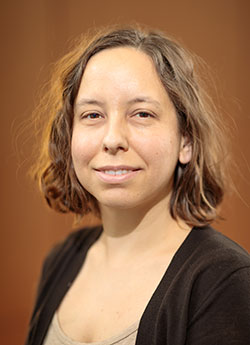Holtzman, Karch honored for research into neurodegenerative diseases
Alzheimer’s researchers David M. Holtzman, MD, and Celeste Karch, PhD, of Washington University School of Medicine in St. Louis, have been recognized by the Rainwater Charitable Foundation for scientific achievements that could lead to new, effective treatments for neurodegenerative diseases associated with the accumulation of tau protein in the brain. Alzheimer’s is the best known such disease.
Holtzman received the Rainwater Annual Prize for Outstanding Innovation in Neurodegenerative Research, and Karch was awarded the Rainwater Prize for Innovative Early-Career Scientists. Holtzman and Karch will receive their awards and give talks on their research at the EuroTau 2021 conference later this year.
Holtzman, the Andrew B. and Gretchen P. Jones Professor and head of the Department of Neurology, is recognized, in part, for his discoveries on the role of the gene APOE in Alzheimer’s disease and related dementias. APOE comes in three variants, and people who carry the high-risk APOE4 variant are three to 12 times more likely to develop Alzheimer’s, and at a younger age, than people who carry the most common APOE3 variant. His lab has shown that the protein APOE, and particularly the APOE4 variant, drives not only amyloid accumulation but also the brain damage caused by tau.
Holtzman also studies the relationship between sleep and Alzheimer’s. Disrupted sleep is a harbinger of and consequence of many neurodegenerative diseases. His lab has shown that sleep deprivation and prolonged wakefulness increases levels of tau in the brain and the spread of damaging forms of tau. In addition, Holtzman’s lab — together with the lab of Marc Diamond, MD, now at the University of Texas Southwestern Medical Center — was involved in the development of an anti-tau antibody that is now in phase 2 clinical trials for Alzheimer’s disease.

Karch, an associate professor of psychiatry and scientific director of the Dominantly Inherited Alzheimer Network, has focused on defining the molecular and cellular mechanisms underlying diseases caused by tau, collectively known as tauopathies. Her research has helped improve understanding of how tau genetics influence tau biology and inform paths for therapeutic intervention. This study requires unraveling the complexities of MAPT (the gene that encodes the tau protein), tau protein dysfunction within the cell, and the interactions that produce pathology in the brain.
Karch and Holtzman have been deeply involved in the Tau Consortium, a program launched by the Rainwater Charitable Foundation in 2010 that commissions world-class research and drug discovery with the goal to treat and prevent primary tauopathies such as progressive supranuclear palsy, as well as secondary ones such as Alzheimer’s. Karch’s lab has focused on building tools to share with other researchers studying tauopathies so that more laboratories can work to pursue their hypotheses.
Source: Read Full Article
